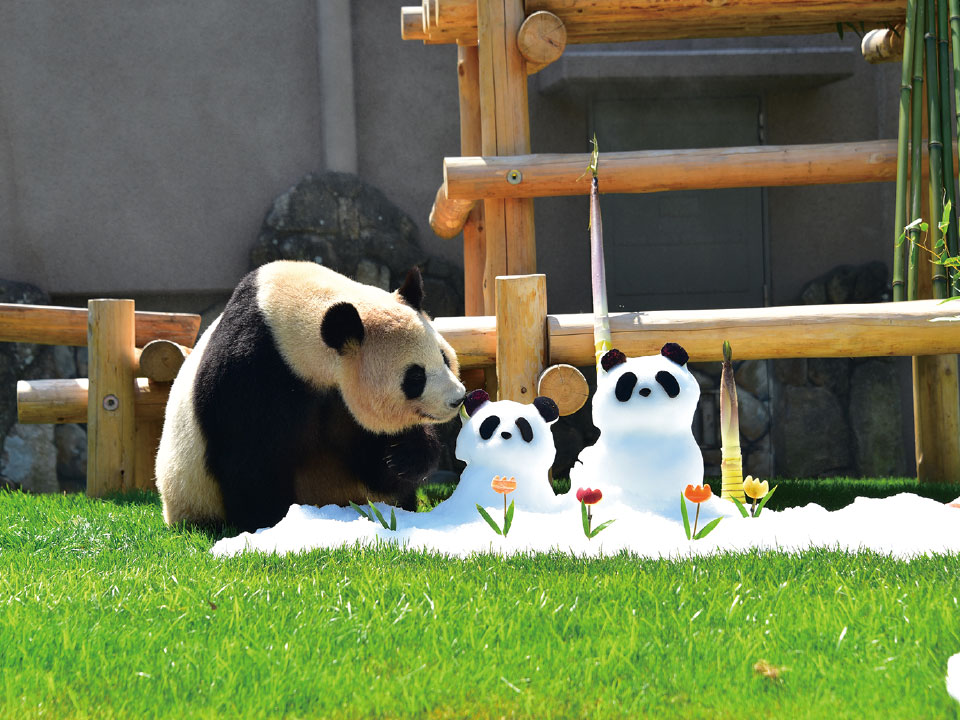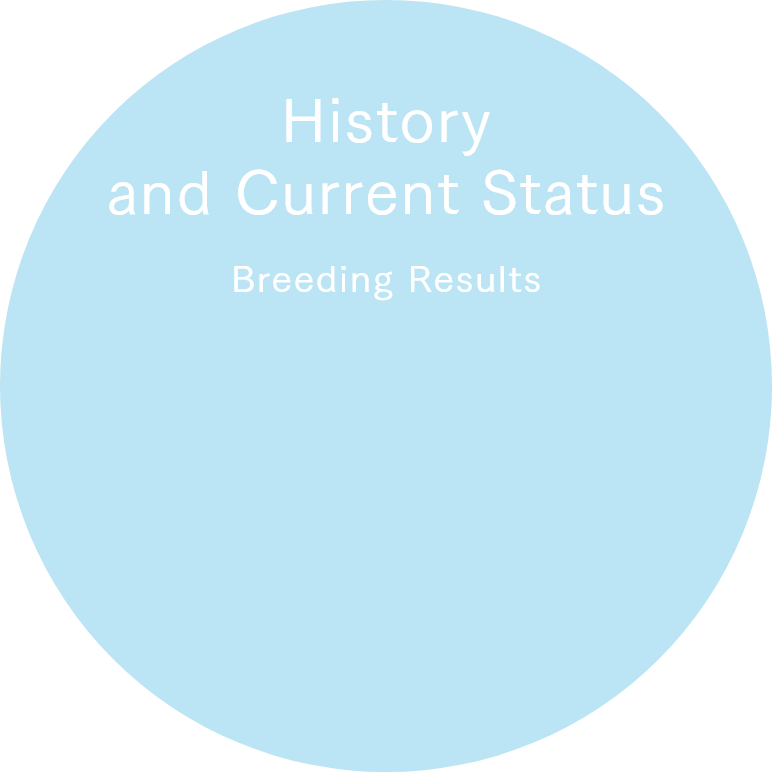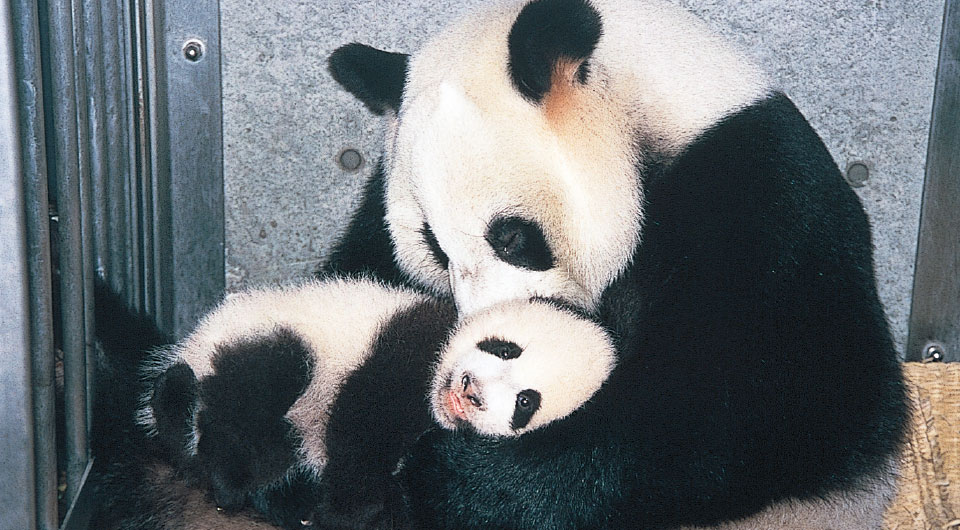

First Panda Born in Japan in 12 Years
- Natural Breeding as a Top Priority
- The joint project for the conservation of giant pandas places top priority on natural breeding in captivity. After preparing an environment which allows for natural breeding, we observed changes in behavior and physiology, as well as took measurements of hormone levels, to confirm male and female are in estrus so that we can determine the optimum mating seasons. While priority is placed on natural breeding, when mating frequency is low, or when the males show no sign of interest in the females despite the female being in estrus, we have employed artificial insemination as well.
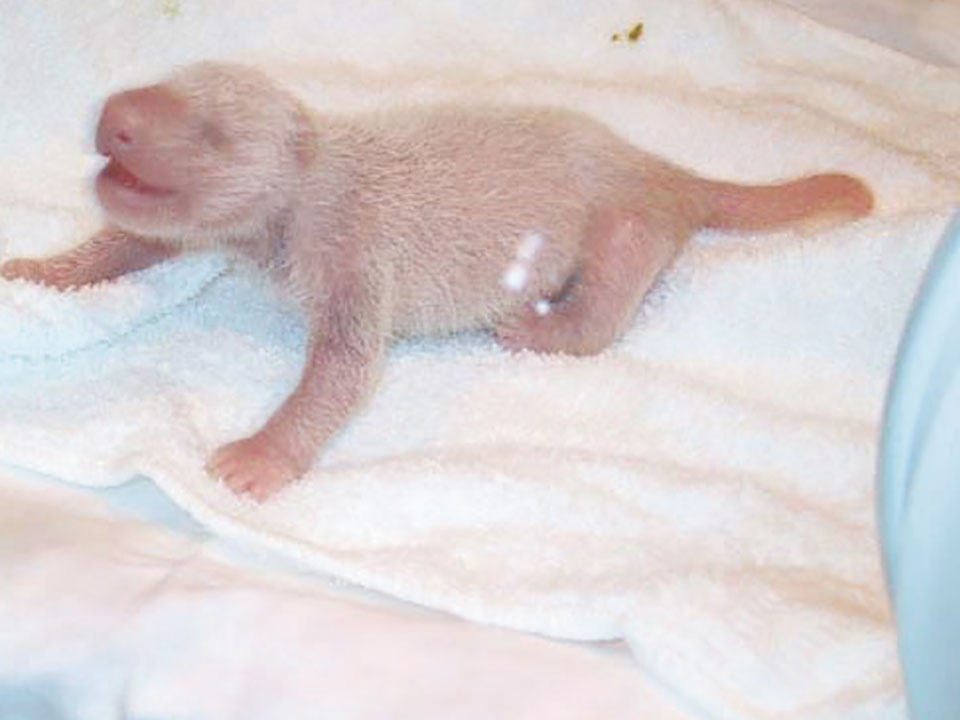
- Meimei's Pregnancy and Birth via Artificial Insemination
- In 1999, when Meimei was 5 years old, she was bred for the first time at the Chengdu Research Base of Giant Panda Breeding and successfully raised two cubs. In the spring of 2000, she was artificially inseminated at the Chengdu base and sent to our park later that year in July. In August she showed signs of pregnancy such as increased sleep duration, reduced feed consumption, and increased levels of pregnancy hormones in her urine. Then, on September 6, she gave birth to a cub (later named Rauhin). This was the first panda birth in Japan in the 12 years since the confirmed birth at Ueno Zoo in 1988.
Research Kick-off and Results
- Eimei and Meimei Have 8 Cubs through 4 Pregnancies
- Full-scale breeding research began in 2001. In late August in the year, Meimei showed signs of estrus, and as if in response, Eimei also showed similar signs. After mating, Meimei gave birth in December. Between 2001 and 2006, this pair gave birth to eight cubs through four pregnancies, and six of those cubs were successfully raised (one cub died at 1 day of age, and another was stillborn). In 2003, we successfully raised two cubs at the same time for the first time in captivity. The breeding season for pandas typically starts in spring with births in summer or fall, whereas we recorded two rare cases of estrus starting in summer and births taking place in December. Meimei was quite skilled at raising cubs, but unfortunately she passed away of illness in October 2008.
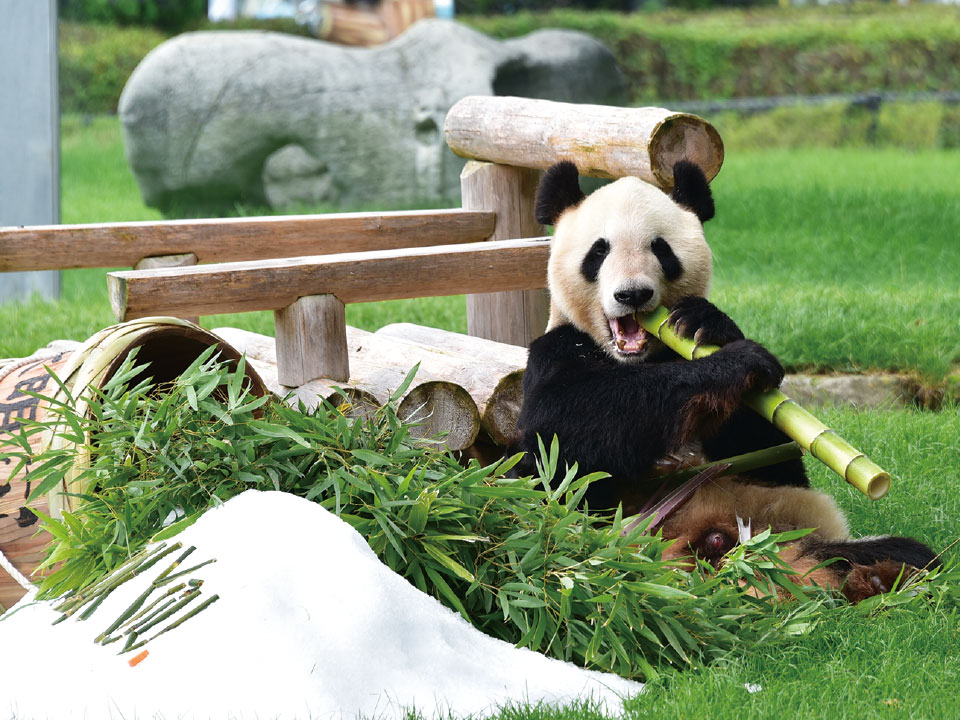
Eimei , a male that can do natural mating
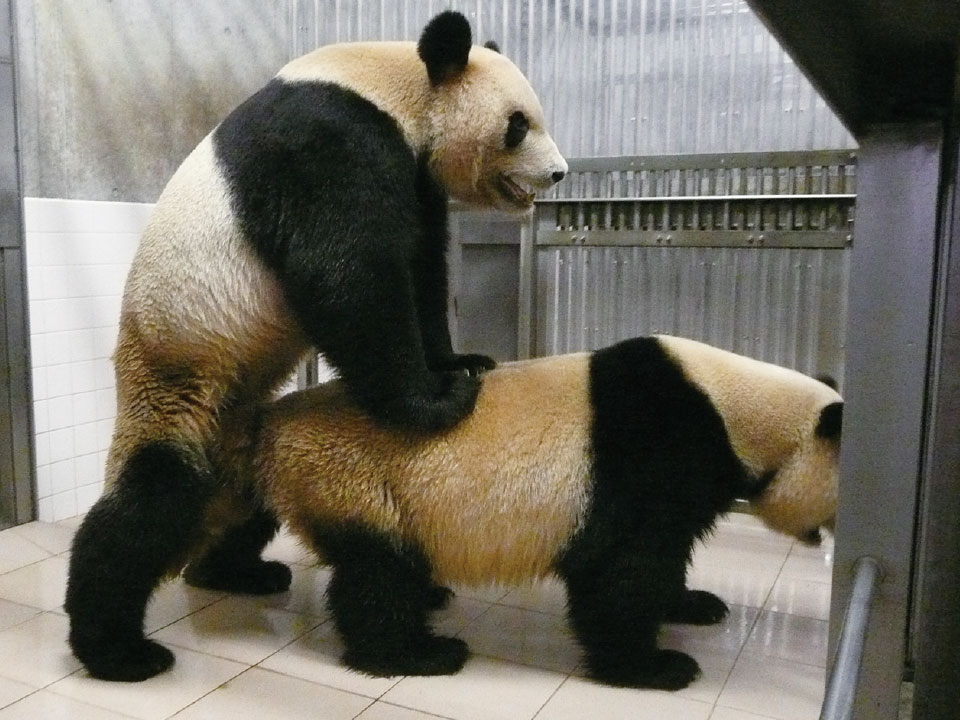
- Eimei Succeeds in Natural Mating at 28 Years Old
- As of early 2000, it was believed that successful natural breeding rates for male pandas in captivity was extremely low. However, Eimei, who had arrived at the park in 1994 at age 2, became a rare male capable of just such. After his first natural mating in 2001, he has successfully mated each time the female shows signs of estrus. The standard male age limit for breeding is reportedly 20, but Eimei successfully mated and produced an offspring in 2020 at the age of 28, showing breeding prowess which continues despite his age. The samples of his semen taken 16 times between 2001 and 2010 revealed its quality was nearly as good as that had been collected at the Chengdu base. The collected samples have been used for artificial insemination at the park as well as cryopreserved for use as an important genetic source. In 2002, Eimei's semen was used for an artificial insemination at the Chengdu base and a male cub was born that same year. Eimei's semen has not only been used at our park, but has also contributed to the preservation of genetic diversity of pandas at the Chengdu base.
Breeding Results in China
- Our Panda Lineage's Contributions around the World
- On June 22, 2004, Yuhin became the first panda born in Japan as part of international joint breeding research, and in accordance with the agreement signed for the research he was sent to the Chengdu base. Since then, 11 of the pandas born at our park have been sent to China. According to the international studbook in 2019, eight facilities, including our park, sent bred offspring to China, and among them all our facility had the best results. Pandas sent back to China are incorporated into breeding plans there. Among them, two males and two females of ours have contributed to breeding efforts and birthed over 20 cubs. Yuhin's offspring also have taken part in breeding plans internationally, leading our panda family in playing active roles around the world.
